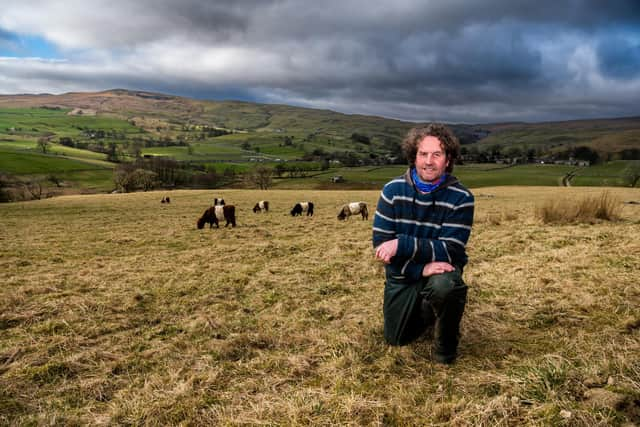National Parks can deliver on climate, nature and health demands - but need more money from government to do it
Public consultation starts later this month on draft ideas and will ask people who live and work in, and use, the Yorkshire Dales National Park area what they would like to see included within the next Yorkshire Dales National Park Authority Management Plan.
The Yorkshire Dales National Park Authority (YDNPA) is now in the final year of its current five year strategy (2019 to 2024) which had 49 objectives to achieve and work towards on issues such as wildlife, environment, public engagement, tourism, broadband connectivity and housing.
Advertisement
Hide AdAdvertisement
Hide AdAs some have been achieved, some are in progress and others require substantial funding, leaders at the Authority say the 2025 to 2030 strategy will build on the work that has already been done.


Neil Heseltine is chair of the National Park Authority, chair of the Yorkshire Dales National Park Authority and is also on the steering group for the YDNPA management plan as well as running his own farm in Malham.
He told the Yorkshire Post: “The process is just getting underway. We are looking at everything really, we will look at what has been successful from the last plan and how things might have changed.
"Government policy could be part of that but also what is happening in life in general and changes. Since the last plan we have had COVID and that has influenced visitors that we have got and building on that will be important.
Advertisement
Hide AdAdvertisement
Hide Ad“Climate and nature has risen up the agenda and we will put that first and foremost in the new plan.”
There are six main elements to the plan – cultural landscape, welcoming place, wildlife, climate change, local economy, communities.
Wildlife and climate change will be put to the top of the agenda with actions in the other areas having to feed into what will be beneficial for nature and the environment.
Mr Heseltine said: “With housing there is a need and we will have an aspiration to build a certain amount and we will see how that fits into the aspiration and ambition with regards climate and nature. The building of houses has to have a responsibility to those two.
Advertisement
Hide AdAdvertisement
Hide Ad“Tourism is another good example. We welcome people to the park and from more diverse cultures but the vast majority come in cars - it is 80 per cent. How do we square that circle?
“We want to see more public transport but at the end of the day we are not the people that provide that - that is down to North Yorkshire Council and, in our case, Westmoreland and Furness Unitary Authority. We have to work with these bodies and look at how we can make that happen.”
In addition to the YDNPA, other organisations and bodies that have input into the plan include Natural England, the Forestry Commission, the Farmer Network and the Environment Agency.
Significant achievements from the 2019-2024 plan that have been made include 1.8 km of overhead power lines being placed underground at Gamelands Stone Circle, near Raisbeck; the planting of almost 1000 hectares of native broadleaved and mixed woodland trees; eight new apprentices being taken on; restoration of 450 hectares of degraded peatland and the designation of and starting work on The Coast to Coast Path National Trail, which covers 197 miles of walking route.
